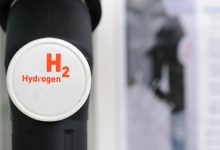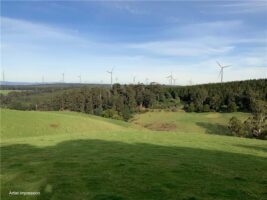Perth based Hazer Group has successfully completed a $8.4 million share placement that will be put towards one of Australia’s first biogas to green hydrogen production facilities.
Hazer said that the share placement, which is linked to a biogas to green hydrogen pilot plant, received a high level of interest from investors, which allowed the company to both close the investment offer early, as well as boosting the amount of funding raised to $8.4 million, above initial target of $6 million.
The result highlights the strong interest in Australia’s emerging green hydrogen industry and the $22.6 million pilot project has already received backing from the Australian Renewable Energy Agency, receiving a $9.4 million grant in March. The pilot project will involve the use of a renewable supply of biogas used as a feedstock, produced from sewage waste and which will be converted into green hydrogen.
Hazer Group also secured a $6 million loan facility from Mitchell Asset Management, to provide a funding reserve, to be drawn upon as the construction of the hydrogen pilot plant progresses.
The project has secured an agreement with the Western Australian Water Corporation to provide a supply of biogas from the Woodman Point Wastewater Treatment Plant, located south of Perth and which will also be host to the hydrogen pilot plant. Hazer is also in negotiation with BOC Limited, which is looking to act as the off taker of the green hydrogen produced at the pilot project.
The Woodman Point Wastewater Treatment Plant already has bio-digestor facilities on site, which allow for methane gas to be produced and captured from the sewage waste received at the plant, and will serve as a ready-made supply of green biogas for the Hazer hydrogen project.
In addition to securing the supply agreement with the WA government owned Water Corporation, the Hazer pilot project has also received additional funding support through the WA Renewable Hydrogen Fund.
Hazer’s pilot project will have a hydrogen production capacity of more than 100 tonnes each year and will be produced at a quality suitable for fuel-cell use, allowing it to be used as a transport fuel.
“We are delighted by the strong support that has been shown for Hazer in this raising and welcome our new shareholders to the company. With the completion of this funding package, Hazer is strongly positioned to construct, commission, and operate our Commercial Demonstration Project, a major milestone in scaling up the Hazer technology,” Hazer Group chairman Tim Goldsmith said.
“Would also like to thank Water Corporation for their engagement and support in completing the binding agreements for biogas supply and project collaboration, and ARENA for their ongoing support in funding this exciting Australian developed technology. We look forward to continuing to work with you to deliver an excellent project.” Goldsmith added.
The “Hazer process” being developed by the company was originally invented by Australian researchers at the University of Western Australia, with the Hazer Group being spun out as a way to commercialise the technology.
While the pilot project will use renewable biogas as a feedstock, the process can produce hydrogen using any source of methane gas and may be adapted for use in the production of hydrogen from non-renewable sources like natural gas.
The Hazer process can be used in the production of a synthetic graphite material when iron ore is used as the feedstock, which also serves as a way to capture and utilise excess carbon produced from the methane-to-hydrogen conversion process. This allows the process to directly incorporate a method for avoiding emissions when producing hydrogen from a fossil fuel.
The company intends to complete the construction of the pilot plant before the end of 2020, with the first operation commencing by January 2021.
Western Australia has emerged as a hot-spot for Australia’s emerging green hydrogen industry, including a $3.5 million Clean Energy Innovation Hub, that includes an example mini-grid for renewable hydrogen production and uses developed by utility ATCO, as well as interest from global energy giant BP in building 1.5GW of new wind and solar projects to power large-scale hydrogen production.
RenewEconomy and its sister sites One Step Off The Grid and The Driven will continue to publish throughout the Covid-19 crisis, posting good news about technology and project development, and holding government, regulators and business to account. But as the conference market evaporates, and some advertisers pull in their budgets, readers can help by making a voluntary donation here to help ensure we can continue to offer the service free of charge and to as wide an audience as possible. Thank you for your support.








